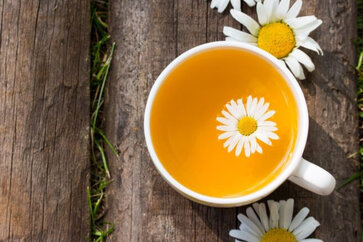Ayurvedic Medicine For Anti Aging
Ayurveda, an ancient life science originating from India, is known for its holistic approach to health and well-being. It encompasses various remedies and practices that address the root cause of ailments rather than merely treating the symptoms.
One area where Ayurveda offers valuable insights is in managing the signs of aging, which affect the skin, senses, body, and hair. Here are some ways you can incorporate Ayurvedic principles to address aging concerns:
1. Balanced Lifestyle: Ayurveda emphasizes maintaining a balanced lifestyle to promote overall health and slow down the aging process. This includes following a regular daily routine, known as dinacharya, which includes waking up early, practicing meditation or yoga, consuming balanced meals, and going to bed at a reasonable hour.
2. Diet and Nutrition: Ayurveda suggests consuming a nutritious and well-balanced diet to nourish the body and support healthy aging. It emphasizes fresh, organic, and seasonal foods, with an emphasis on fruits, vegetables, whole grains, lean proteins, and healthy fats. Additionally, incorporating antioxidant-rich herbs and spices such as turmeric, ginger, and amla (Indian gooseberry) can provide anti-aging benefits.
3. Herbal Remedies: Ayurveda utilizes various herbs and herbal formulations that have potent anti-aging properties. For example, herbs like ashwagandha and guduchi are known for their rejuvenating effects on the body and mind. These herbs can be consumed in the form of herbal supplements or as prescribed by an Ayurvedic practitioner.
4. Facial and Skin Care: Ayurvedic practices for skin care focus on natural ingredients and gentle techniques. This may include using herbal face packs, oils, and cleansers suitable for your skin type. Ayurveda also emphasizes regular facial massages, known as mukha abhyanga, using oils like sesame or almond oil, to improve blood circulation and promote youthful-looking skin.
5. Stress Management: Ayurveda recognizes the impact of stress on the aging process. Practicing stress management techniques such as meditation, deep breathing exercises, and yoga can help reduce stress levels and promote overall well-being.
6. Ayurvedic Therapies: Ayurveda offers various rejuvenation therapies known as Panchakarma, which help cleanse and detoxify the body. These therapies, administered by trained Ayurvedic practitioners, can help eliminate toxins, improve digestion, and rejuvenate the body at a deeper level.
It is important to note that while Ayurveda offers valuable insights, it is always advisable to consult with a qualified Ayurvedic practitioner or healthcare professional before incorporating any new treatments or remedies into your routine. They can provide personalized recommendations based on your unique needs and health conditions.
Ayurvedic Remedies For Anti Aging
Herbs and Vayasthapana:
Vayasthapana is an Ayurvedic term referring to the anti-aging effects of certain herbs. One such herb is Gotu Kola, which is well-known for its anti-aging properties in Ayurveda. Ashwagandha is another herb commonly used in formulations for its rejuvenating effects. Additional herbs like Amla, ginger, turmeric, and Galanga are also utilized to create anti-aging effects. Clove oil can be used during massages to promote anti-aging benefits.
Radiance and Varnya:
Varnya herbs in Ayurveda are those that help maintain or enhance the natural glow and radiance of the skin. Examples of such herbs include flame of the forest, silk cotton tree, rose petals, and Indian redwood. These herbs, when combined, can help retain a youthful glow on the skin and prevent the appearance of fine lines.
Deep Healing and Branropana:
The use of sensitive herbs, including Gotu Kola, can facilitate deep healing of the body and enhance the skin (Twacha). These herbs may also help strengthen the digestive system, preventing the accumulation of Ama (toxins). Turmeric, rose petals, and cotton silk tree are among the other herbs used for deep healing purposes.
Yoga:
Yoga is a well-known practice for maintaining vitality and overall well-being. Certain yogic postures and poses can be beneficial in the anti-aging process. These may include equal standing for better balance, the tree pose, the squat pose, the downward dog pose, the plank pose for core strength, and the seated twist.
Diet and Lifestyle:
Ayurveda emphasizes the importance of following a balanced diet and lifestyle to effectively heal and prevent ailments. It suggests consuming meals at regular times with a proper balance of food groups. Following Ayurvedic principles of eating, resting, and engaging in activities in a balanced manner is crucial for overall well-being and can help delay the aging process.
Note: Ayurveda can be incorporated into daily life even when there are no specific ailments present. Herbs can be consumed on a regular basis as seasoning for food, while practicing yoga can become a routine.
By integrating Ayurvedic principles into your lifestyle, you can proactively take care of your body and experience the benefits of delayed aging. It is always recommended to consult with an Ayurvedic practitioner for personalized guidance and advice.























